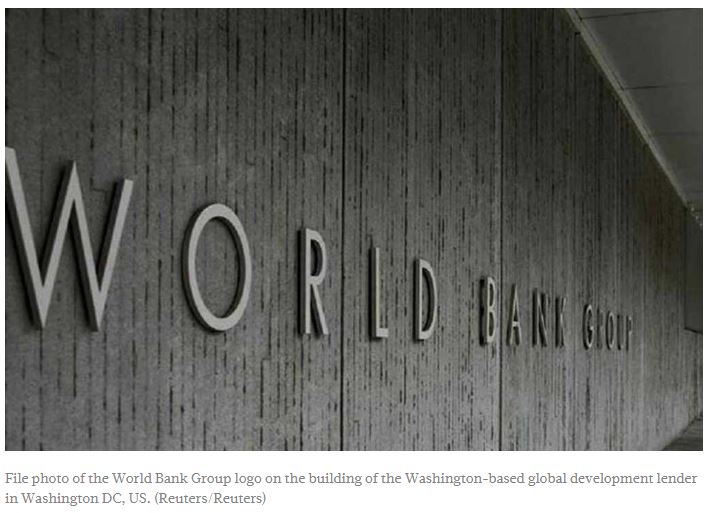Indonesia: World Bank urges tax, subsidy reforms to improve public spending
The World Bank has called on Indonesia to carry out reforms, especially on tax and subsidies, to improve the quality of its public spending.
In its “Indonesia Public Expenditure Review” report published on Monday, the global financial institution said the country currently faced several constraints that prevented it achieving quality spending to close the gap between human capital and infrastructure.
“We found that Indonesia has a limited space for development spending due to low revenue, as well as systemic constraints across sectors such as coordination challenges and inadequate data and information systems,” said World Bank senior economist Ralph von Doorn.
He said that despite Indonesia’s robust economic growth, subsidy reforms and increased spending on infrastructure, health and social assistance, public spending remained inadequate.
The report also found that the spending was not always directed at the right interventions, while that which was directed at the right intervention was found to be inefficient and ineffective at achieving the desired pro-equity outcomes, added van Doorn.
Given such a situation, the World Bank recommended that the country conduct reforms, especially in tax and subsidies, to increase state revenue. The recommendations were also aimed at ensuring spending would be more efficient and effective.
Von Doorn said Indonesia should reform subsidies, especially abolishing diesel fuel and fertilizer subsidies.
He went on to say that by abolishing diesel fuel subsidies, the government could channel the spending into helping the lower-income half of the population, as he pointed out that the subsidy was mostly enjoyed by the wealthier sections of the population.
He also suggested the government replace the fertilizer subsidies program by providing farmers with new research and technology or new seed types to help them be more productive in the long run.
Meanwhile, van Doorn also said that the government should utilize data and technology in other subsidies, such as those for electricity and liquefied petroleum gas (LPG), to prevent leaks and improve disbursements.
“Reform of subsidies will have many benefits besides fiscal ones, including reducing poverty, improving productivity and reducing the environmental impact of the subsidies,” he said.
The country recorded a total of Rp 1.96 quadrillion (US$137.94 billion) of state revenue realization last year, equal to only 90.4 percent of the 2019 state budget as a result of lower tax revenues, and last year’s state budget deficit widened to 2.2 percent of gross domestic product (GDP), higher than the 1.8 percent target.
As the COVID-19 outbreak continues to ravage the economy, von Doorn predicted that Indonesia’s fiscal space would become tighter post-pandemic as state revenues were unlikely to recover for some time, given sluggish commodity prices and reduced corporate income tax returns.
“To increase revenue and efficiency, Indonesia now needs to implement tax measures so that post-COVID, it can offset those impacts and restore tax to pre-COVID levels,” he added.
The measures should include efforts to widen the country’s tax base, introduce taxes to meet environmental and health objectives, as well as improving tax compliance to help restore tax revenues to pre-COVID-19 levels.
National Development Planning Agency (Bappenas) state finance and monetary analysis director Boediastoeti Ontowirjo said the measures that the World Bank suggested were included in the country’s “core tax administration system” program that would be implemented by 2024.
The core tax administration system is one of the key pillars of Indonesia’s ongoing tax reform, kicked off by the Finance Ministry in 2016, aimed at overhauling operations at the tax office and improving services to taxpayers.
The reform of the tax administration is expected to increase Indonesia’s tax-to-GDP ratio by 1 to 1.5 percentage points, according to an International Monetary Fund (IMF) study. In 2017, the ratio stood at 10.7 percent, one of the lowest in the Asia Pacific region.
Finance Ministry special staff member Masyita Crystallin said the government was currently working on the World Bank’s suggested subsidy reforms, such as implementing cash-based transfers for several social assistance programs.
Despite the moves toward reform, she acknowledged that the government still faced hurdles in disbursing the assistance programs.
“We still have challenges in the data set and data connectivity with other ministries that are not yet synchronized with the [Social Affairs Ministry’s integrated data on social welfare] DTKS,” she said.
She gave an assurance that the government was working to update the data regularly so that it could move toward targeted subsidies, especially at a time when many vulnerable people were in dire need of assistance to pull through the pandemic.
Source: https://www.thejakartapost.com/news/2020/06/23/world-bank-urges-tax-subsidy-reforms-to-improve-public-spending.html


 English
English




